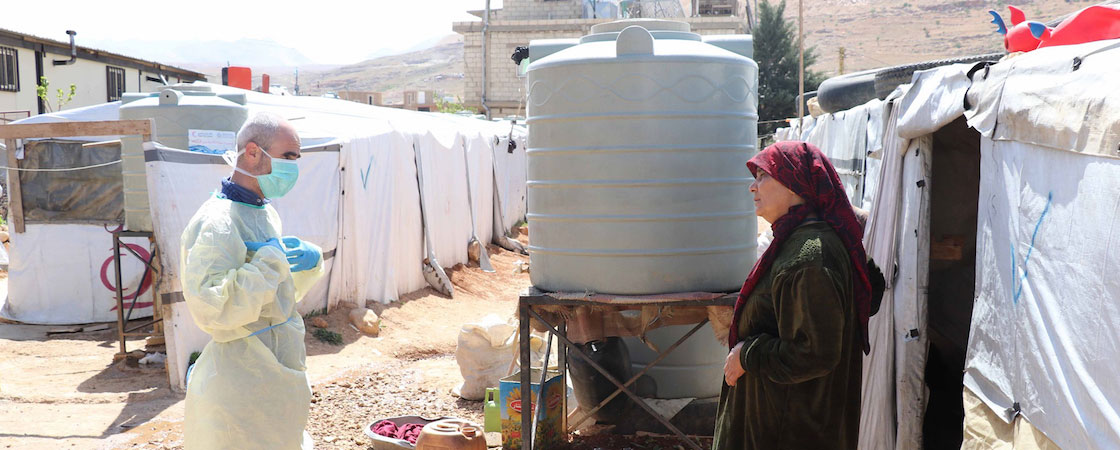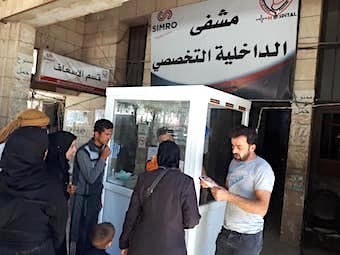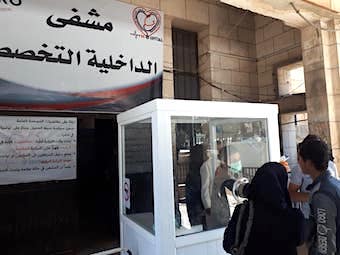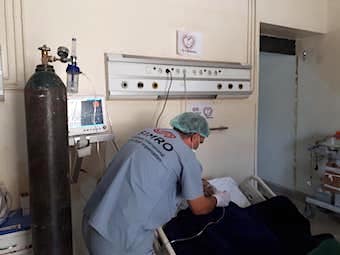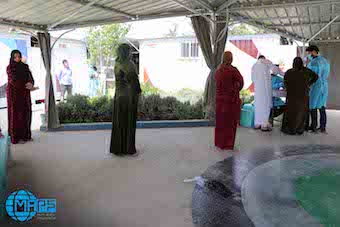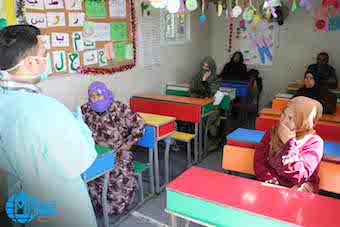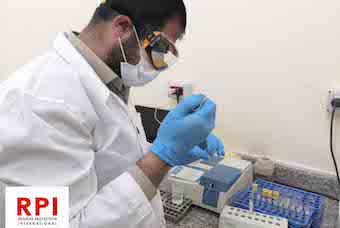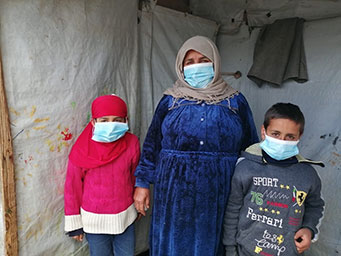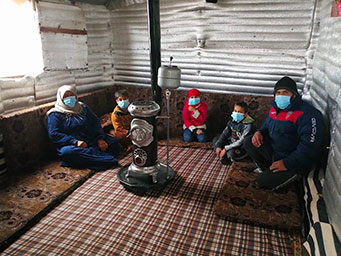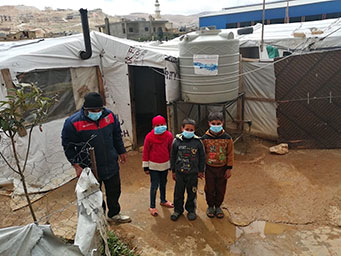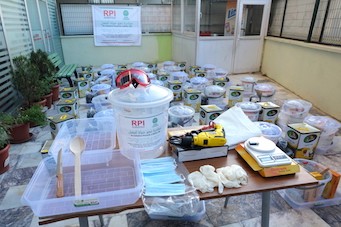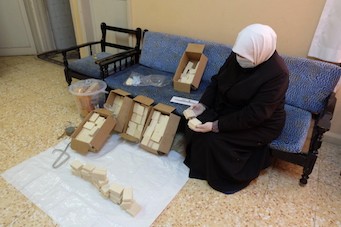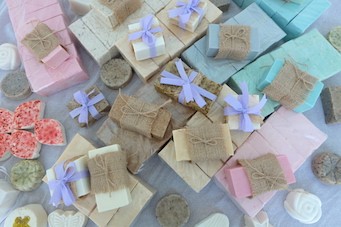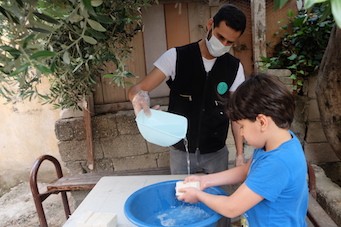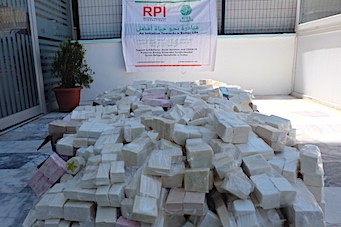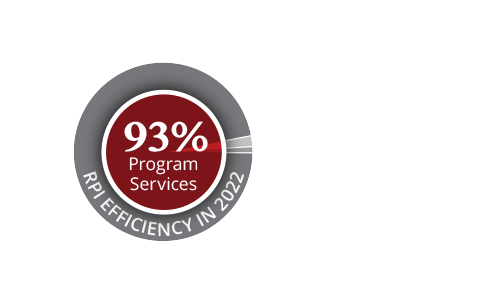Refugee-led COVID-19 Preparedness and Response Projects in the Middle East
Facilitated by RPI and implemented on-site by our refugee-led partners Sustainable International Medical Relief Organization, Multi Aid Programs, and Kids Paradise
Syria: Within just 8 months of the World Health Organization (WHO) declaring COVID-19 a pandemic, our project with refugee-led nonprofit partner Sustainable International Medical Relief Organization (SIMRO) identified 16% of confirmed COVID-19 cases in war-torn northwest Syria through 155,467 screenings and referrals for testing. Medical screening operations were equipped and staffed at the 70-bed Internal Medicine Specialty Hospital in Idlib. The WHO and MSF Spain supported other COVID-19 infection prevention and control efforts at this key hospital. After a decade of civil war, half of the country’s health facilities are non-operational. Millions of civilians have displaced to overcrowded camps and damaged cities. The supported hospital has an isolation ward and ventilators. We have integrated community awareness raising on COVID-19 into projects with our partners Orkide and Olive Branch on community management of acute malnutrition, IYCF-E, winterization and hygiene support, reaching nearly 21,000 people in informal camps, underserved villages, and urban hotspots for COVID-19 in NW Syria. All of our partners on Syria are refugee-led and Turkey-based.
Lebanon: We support Multi Aid Programs (MAPS) in Lebanon to protect refugees against COVID-19 in 9 informal tented settlements with poor access to water and sanitation in Bekaa Valley. Over 25% of Lebanon’s population are refugees, the highest per capita rate in the world. Earning as little as $49 a month, Syrians rely heavily on MAPS health centers for subsidized care. During community outreach, 4,167 refugees received hygiene packages, COVID-19 information sessions, and screening for fever, with medical exams conducted as needed. MAPS health centers were equipped with local personal protective equipment for 64 frontline staff and surgical masks and education for patients. Community awareness raising on COVID-19 continues at all of MAPS’ 9 non-formal primary schools for Syrian refugee children. RPI has supported these schools since the 2016-2017 school year thanks to the generosity of Together Women Rise , American Securities Foundation and individual supporters (Data: UN).
Turkey: Under a co-designed self-reliance project, we have supported Kids Paradise to improve refugee access to hygiene items, COVID-19 information, and livelihoods. Turkey has one of the highest numbers of confirmed Coronavirus cases in the world and is host to the most refugees globally, including 3.6 million Syrians. Even before the pandemic, 32% of Syrians could not afford basic hygiene items. The most vulnerable refugees earn just $160 per month and live in substandard conditions, increasing their risk of infection. This project distributed refugee-made soap and COVID-19 information in Arabic to 5,261 refugees in Antakya near the border with Syria. Vulnerable Syrian refugee women received training on soap production, as well as reusable soap production kits, marketing support, face masks, and emergency stipends. Trainees were screened for symptoms and socially distanced. NEID’s Giving Circle for Refugees generously supported this project (Data: UN Women, Doctors without Borders, JHU).


